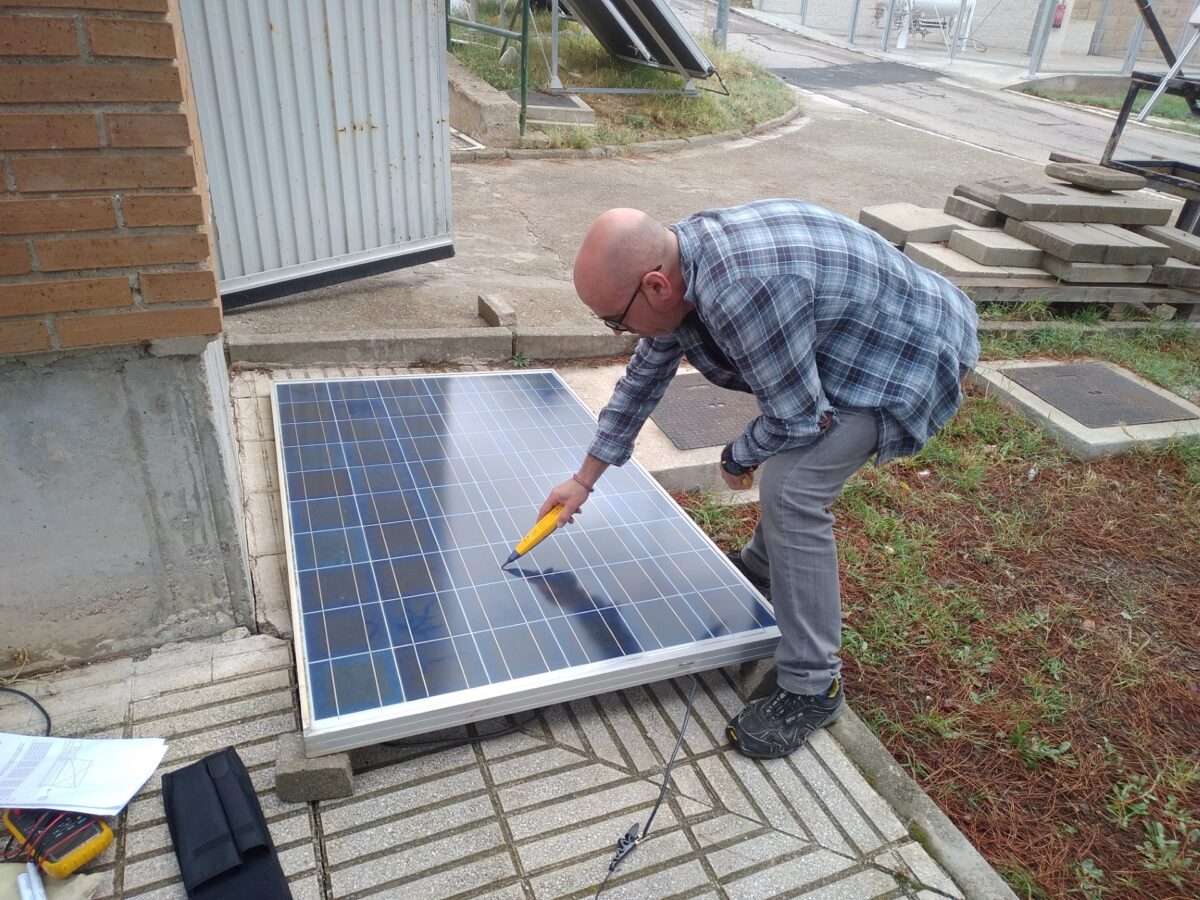A group of researchers led by Spain's Centre for Energy, Environmental and Technological Research (CIEMAT) has developed a set of techniques to repair ribbon busbar interruptions in photovoltaic panels.
“Interruptions between cells account for 10% of module failures,” the research's lead author, Félix García Rosillo, told pv magazine. “Repairing interruptions can be performed using conventional hand tools and may help recover most of a module's nominal power.”
The scientists presented two different repair methods. The first requires the complete removal of the module backsheet, the replacement of the damaged busbars, and the placement of a new backsheet. The second requires the removal of the backsheet in the damaged area, the soldering the busbar and sealing via silicone resin.
Both techniques do not require the acquistion of expensive electroluminescence (EL) images of the panels before and after repair. “It is important to clarify that it is not possible to obtain EL images from a module affected by twin ribbon busbar interruptions,” the scientists noted. “If current tries to flow between solar panel contacts, connected to a power supply and two of the cells are affected by a total ribbon busbar interruption, the current will not flow and consequently, it will not be possible to obtain the EL image.”
The academics explained that by removing the diodes from the junction box and checking the electrical connections between the different terminals in the junction box at the time of the EL measurement, images of non-affected series of cells can be obtained. They also warned that, in pre-repair EL images, only the active series of cells are visible to the camera. “When the module is repaired, the EL image reveals all cells and it is possible to know their actual state,” they added.
The repair process requires the use tone testers or cable locators to allow the precise identification of the twin interrupted cell interconnection. “A tone tester that can perform this task can cost as low as few more than two tens of euros,” the team said. “A similar result can be achieved by using a current detector to locate single bus bar cell interruptions, also at low cost and with a fast procedure.”
The final repair step can be executed through conventional handicraft tools like mini rotary drill tools such as grit sanding bands or conventional soldering tools. “A soldering paste and ribbon bus bar complements prove to be a good option for repairing the ribbon bus bar interruptions,” the researchers stressed.
After repair, the proposed method requires the implementation of an IV curve measurement to ascertain how much power output has been recovered.
The research group conducted a series of tests on three 215 W modules produced in 2006 by German manufacturer Qcells and found that, in some cases, it is possible to multiply the power production of the damaged modules by four times.
“Safety must be an important objective when repairing PV module, and any repaired module that does not pass some basic safety tests, must be decommissioned and recycled,” they said, referring to the initial selection that should be made to avoid risks for installers.
The new technique was introduced in the paper “Repairing ribbon bus bar interruptions in photovoltaic modules using non-intrusive interruption location,” published in Renewable Energy. “This methodology can be applied in modestly equipped factories or laboratories, lowering the economic cost of repairing PV modules,” the academics concluded.
This content is protected by copyright and may not be reused. If you want to cooperate with us and would like to reuse some of our content, please contact: editors@pv-magazine.com.




This is a common technique since ages!! It called the re-work process which was standard in all factories in China for defected modules where they heat the module in stage of 150C, remove back sheet and repair.
If you read the original article, the technique used is not the “re-work process” you cited, which is described only for reference, citing the authors of another work. The original thing about the article is the classification of interruptions and the location of interruptions by cheap and fast methods.